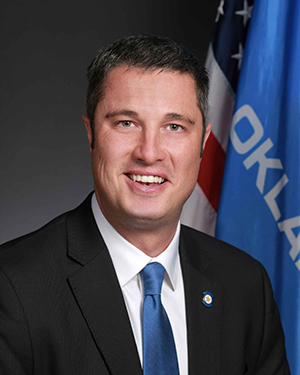
It was an honor to have served the people of District 31 in my first session with the Oklahoma State Senate. People who have worked in or around the Capitol for the last several decades said that this was by far the most difficult budget year they’ve seen. As the state continues its way out of three years of revenue shortfalls, the legislature had the task of closing a nearly $1 billion revenue shortfall. Past legislatures had depended strongly on the use of one-time monies to avoid having to raise revenues, but we took the difficult stance of strengthening our state’s budget and ensuring future stability by creating new sources of revenue.
After much debate and compromise, the legislature finally approved a $6.8 billion budget. I’m proud of my Senate colleagues for their willingness to do what was best for our more than 60 state agencies so that they can continue to provide vital state services. Constituents often call me to discuss budgetary matters, focusing on one state agency. However, I have found one of the most challenging parts of serving in the Senate is not having the luxury of meeting the budgetary needs and requests of one or two agencies. We’re responsible for appropriating funds to all 67 of our state agencies, and this year we had very little to give.
At the beginning of session, budget leaders warned agencies that to fill the budget hole cuts of 15-20 percent might be required; and you have to remember that some agencies have already been cut up to 50 percent in the last decade.
I’m pleased to say that the budget protects our schools, public health, human services, and safety as well as corrections. We were able to provide additional funding to common education by running a trailer bill (HB 2360), which provided an additional $18 million from the Rainy Day Fund and held education flat. This bill was an agreement between the Senate and House to keep the school funding formula at the same level as FY ‘17 in spite of the nearly $1 billion shortfall. The remaining state agencies received on average of a less than five percent cut to their budgets.
Progress was made to correct structural problems that have existed for years in the budget. The Senate approved several measures that will provide new revenue for our state for years to come. Among other measures, we created $95 million by raising the Gross Production Tax (GPT) on “1 percent” wells to 4 percent; $46 million by eliminating oil and gas GPT rebates; $15 million from increased tax enforcement; and $9 million from changes approved for long-lateral drilling. We also will save the state millions of dollars in future budget years by accelerating the sunset date of the wind tax credit.
We approved a tobacco cessation program with the intent of saving lives and improving the health of Oklahomans by encouraging people to quit smoking, especially children. The program will be funded by a $1.50 per pack fee for cigarettes that’s expected to generate around $215 million. This will also help lower our state’s healthcare costs significantly of which tobacco contributes billions in unnecessary expenses to taxpayers annually.
This is a responsible, practical plan that generates new revenue for this year and beyond, protects education, DOC and DHS while also implementing reforms to address chronic budget shortfalls.
Besides working on the budget, we approved legislation to strengthen the state’s education system, protect the health and safety of our youth, provide further assistance to our veterans, strengthen our criminal justice system and ensure that Oklahoma IDs meet federal REAL ID requirements. I’ll discuss these areas in the coming weeks.
In closing, I was honored to carry the nomination of Ervin Randle of Lawton to the Oklahoma Motor Vehicle Commission succeeding Dan Mullins.
We want to thank Cache junior, Dalton McDonald, for serving as a page during the next to last week of session. This month has been extremely busy so his assistance was greatly appreciated and we hope he learned a lot about his state government and the legislative process.
We also want to thank everyone from the district who made the trip to Oklahoma City this year and stopped by to visit with us. We truly appreciate your support and input and for sharing your successes and special events with us.
At the State Senate, I can be reached by writing to Senator Chris Kidd, State Capitol, 2300 N. Lincoln Blvd. Room 411A, Oklahoma City, OK 73105, emailing me at kidd@oksenate.gov, or by calling (405) 521-5563 and speaking to my assistant Suzanne Earnest.